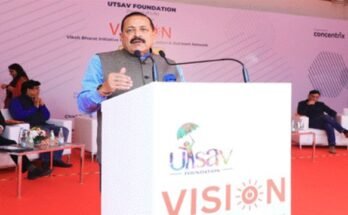The early warning signs of the upcoming tsunami of our economy are all around us. STEM industries, in particular — and the technologies that power them — are changing so fast, the skills you need to succeed right now are not the same ones you will need in five or 10 years (or even tomorrow). What’s more, any job that is rote and easy to learn will probably soon be on the chopping block because a machine will be doing it before long.
A report published by PwC, “Workforce of the Future,” highlighted the trend. It surveyed 10,000 people and found that typical careers, in which a person advances through the ranks of a particular field, will increasingly “cease to exist” as artificial intelligence and robots replace human workers.
Data from the World Economic Forum supports those findings. It revealed that 65 percent of children who entered elementary school as early as 2016 will end up working in jobs that don’t yet exist. And that’s more or less the same if you graduated in 2016.
So how do you prepare yourself now to work in an industry that changes so rapidly, the roles don’t even exist except in the mind of the next Shonda Rhimes or Steve Jobs?
To sail these choppy waters, you’re going to need fundamental skills. Some of these haven’t changed in generations: You still need to be able to write and think clearly, creatively and critically. You still need to be able to read the news and decipher analyses or data.
Yet you also need to be on top of the things that have changed. Whitney Johnson, a leading business thinker who innovated the concept of personal disruption, said you always want to be on the steep part of your S curve; if you stay too long on the flat part, even at the top, you’re going to find yourself bored and out of a job.
Here are five ways you can prepare yourself to land a job in the future and stay ahead of the S curve.
1. Think outside the box
To get good grades, you can no longer just regurgitate facts or formulas. States have upgraded their high school graduation standards to meet the demands of the 21st-century workplace, and colleges have revamped curricula to emphasize applying knowledge to real-world challenges, you need to understand not just the what but the why and when and how to relate those theorems or principles to very different facts or situations. The new economy privileges strong math and data analytical skills, whether or not you’re going into a STEM field.
“Sixty-five percent of children who entered elementary school in 2016 will end up working in jobs that don’t yet exist. And that’s more or less the same if you graduated in 2016.” -World Economic Forum, “The Future of Jobs and Skills”
2. Hone your social skills
An interviewer decides within the first 60 seconds of meeting you whether they will consider you for a position or not. Social skills are critical. Even the savviest of data nerds will need strong leadership and emotional skills to thrive. More work is happening in teams than ever before, and top candidates have to show that they can collaborate, communicate and solve problems.
3. Showcase your talents
The rise of the Maker Movement, a growing subculture of inventors, tinkerers and designers with a tech-inflected bent and a DIY ethos, has led colleges and companies to look for robust portfolios. According to the college-planning and -consulting website College Transitions, universities and colleges “are opening the door to the submission of ancillary materials, such as papers, projects, artwork or videos showcasing extracurricular talents.” Increasingly, companies are looking for people who can actually do things — and already have. Tech start-ups, like CodeFights, which was founded by former Google and Oracle engineers, help companies preview applicants’ coding skill and experience rather than read a résumé.
4. Learn to apply your hard skills to real-life scenarios
Activities that wouldn’t have merited inclusion on a résumé or in an application in the past — like designing or sewing your own clothes or taking apart and rebuilding a motherboard — are now distinguishing characteristics. Saul Griffith, founder of Otherlab and recipient of a MacArthur “genius” grant, said he sifts through job candidates by asking them to draw a bicycle and design a zipline. According to Griffith, you won’t believe how many people can’t do either, because they’ve never had to apply their hard skills to real-life scenarios. In the past, companies looked for “pure” or theoretical knowledge; those who can transfer their knowledge have a leg up.
5. Realize that your ‘onlyness’ is invaluable
Your passion projects — the ideas that grab hold of you and keep you up at night as you work on them — are the very same things that can distinguish you from the pack. Your onlyness, as Nilofer Merchant has dubbed it, is invaluable. While it may seem daunting to someone without power or status to mobilize others around a wild idea, onlyness has boundless potential and can be an incredibly valuable opportunity to stand out.
Note: News shared for public awareness with reference from the information provided at online news portals. Read SKILL REPORTER or Follow SKILLREPORTER on Facebook / Twitter / Linkedin / Google to stay updated with RFP, Tenders, EOI, Jobs, Notifications, Schemes, Projects, News etc. related to Skill Development



